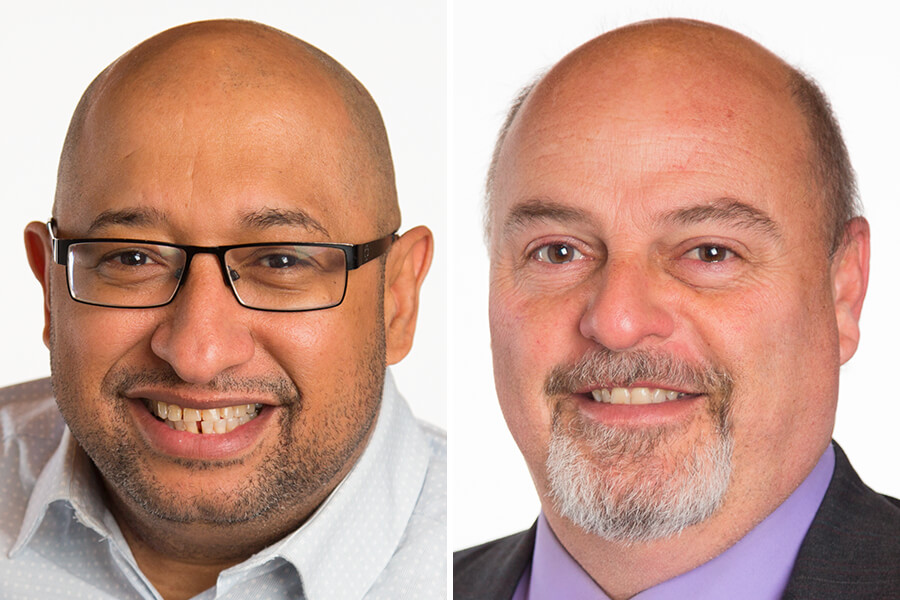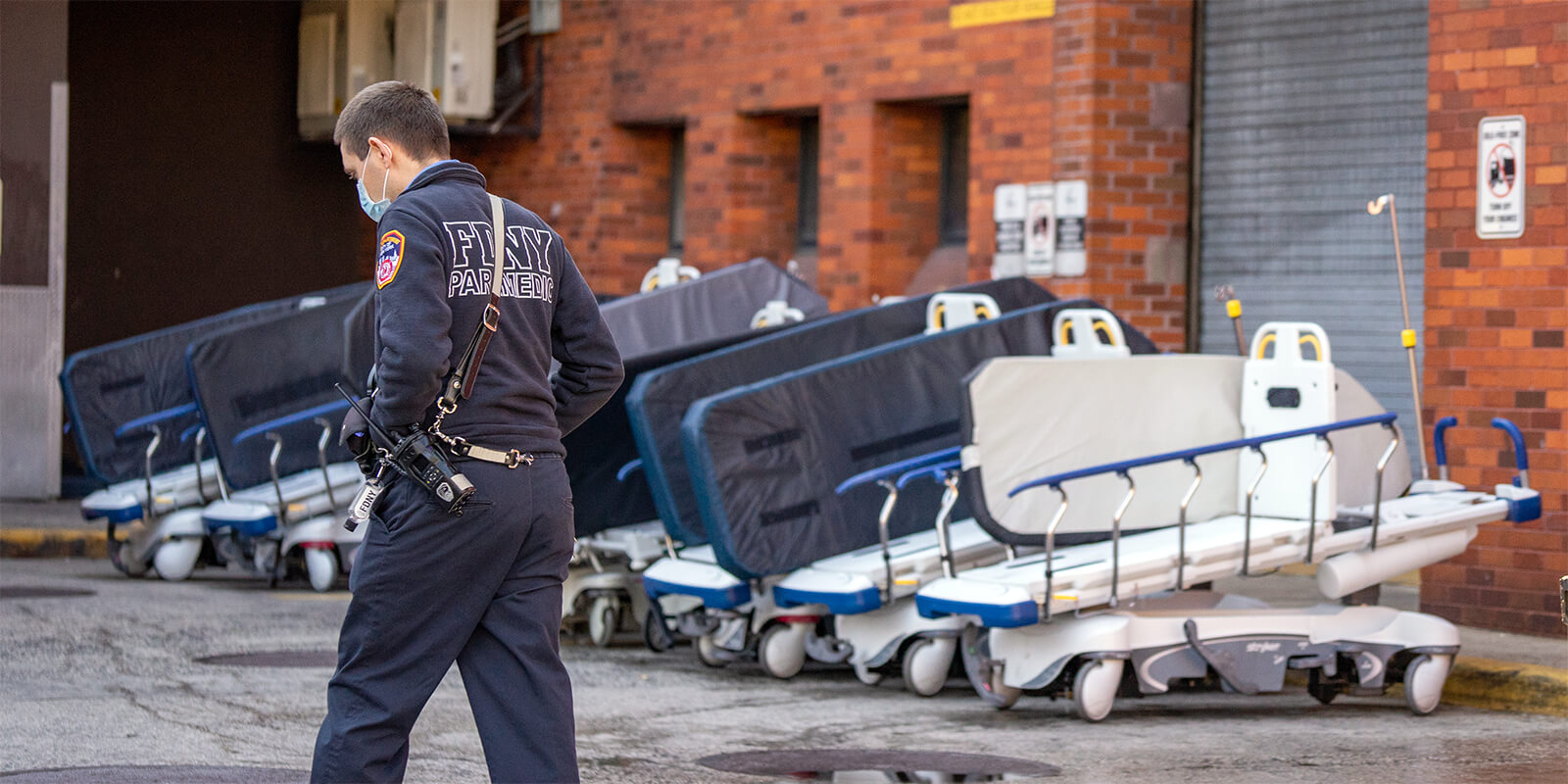
On Thursday, AFSCME members who are recovering from COVID-19 were joined by AFSCME President Lee Saunders and two other AFSCME leaders, DC 37 Executive Director Henry Garrido and OCSEA President Chris Mabe, in a press call, where they described in stark terms not only their struggle with the coronavirus, but the urgent need for Congress to speed robust aid to states, cities and towns to contain the fallout from the pandemic.
Henry Garrido, executive director of District Council 37, New York City’s largest municipal employees union, detailed the toll the virus has taken on DC 37 members, who serve in one of the nation’s hotspots: 142 have died, 3,000 have contracted the virus.
At one point, Garrido noted, 358 EMTs, 10% of the total workforce in that sector, were in quarantine.
“We need Congress to immediately pass an aid package that will maintain services our communities need in the short-term and put us on a path to keep our communities strong for the long-term,” said Garrido. “None of these folks deserve to be laid off, have their hours cut or be furloughed or lose their health care because Washington failed to act. It would be a disgrace.”
Chris Mabe, president of the Ohio Civil Service Employees Association, OCSEA/AFSCME Local 11, described the chaos that Ohio’s public service workers faced – and continue to face – as the pandemic unfolded, particularly those who work in Ohio’s prisons.
“The response to this crisis has been chaotic and driven by management without any input from [correctional] officers who understand what it’s like to work in correctional facilities every day,” said Mabe, a military veteran who characterized the situation as a “war zone.”
The pandemic was bookended by protocols that changed by the hour and desperate attempts by officers to secure personal protective equipment (PPE). More recently, public service workers have been laid off and more will be let go or furloughed in the near future. Mabe’s wife, a corrections officer, contracted COVID-19, as have other close members of Mabe’s family; he said he presumes he’s positive as well.
Carmen De Leon, a respiratory therapist at both Harlem Hospital and Columbia Presbyterian Medical Center and a DC 37 member, has been on the job for 19 years, living through SARS, H1N1 and Ebola, but she said the COVID-19 pandemic was “unlike anything we’ve seen before.”
Fearful of contracting the virus due to pre-existing conditions, De Leon said, “Still, I showed up to work through February and March to help treat patients sick with COVID-19. I showed up even though we lacked the necessary personal protective equipment needed to keep us safe.”
At the beginning of April, she contracted the virus, which had her sleeping 20 hours a day, suffering from days of a high fever, which forced her to send her daughter to stay with family friends, even going so far as to make end-of-life arrangements.
“Public service workers are always essential workers, but especially now, having enough health care workers like myself on staff is crucial to fighting this pandemic,” said De Leon.
Vincent Variale, a Fire Department of New York (FDNY) EMS lieutenant and president of Local 3621 (DC 37), the uniformed EMS officer's union, drew a parallel between having survived COVID-19 and the desperation many of his fellow EMS workers experienced during the height of the pandemic, up to today.
“I have also contracted and recovered from COVID-19 – an experience I never want to go through again,” Variale said. “A couple times at night while I was lying down, I would jump up because I couldn’t breathe. I had to start sleeping in a chair because I was afraid I would stop breathing when I was asleep. I’m grateful that I got through it.”
Variale added: “Our biggest concern now that the call volume has dropped is the mental health and PTSD our members are suffering from, brought on by dealing with all the death they have seen and the constant pressure of the call volume.”
Variale said that six EMS workers have died during the pandemic: four from COVID-related complications, and two from suicide.
Saunders thanked the members for their continued dedication to their communities throughout the pandemic.
He also explained why Congress needs to pass the HEROES Act, which was introduced in the House of Representatives on Tuesday and is likely to be voted on Friday.
If the steep decline continues, said Saunders, our communities will be shattered, the current recession will devolve into a depression, and defeating COVID-19 and reopening the economy will be impossible. A report out today shows municipalities across the country are projected to lose hundreds of billions of dollars in revenue due to the economic fallout caused by the coronavirus.
Just as importantly, without robust aid, the front-line workers who are saving us from this crisis will receive pink slips for their efforts, adding to nationwide unemployment levels not seen since the Great Depression.
“This pandemic has sent the economy into a nosedive,” said Saunders. “Revenue is drying up, the tax base is eroding, and working people are facing catastrophic job loss. The economy hemorrhaged more than 20 million jobs in April, about 1 million of them in public service. That’s more public sector jobs lost in a single month than during the entire Great Recession a decade ago.”
